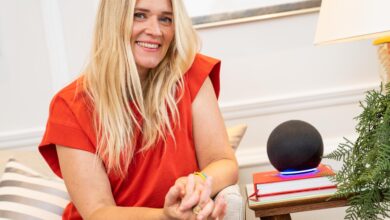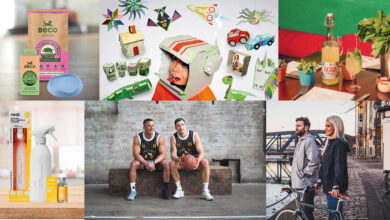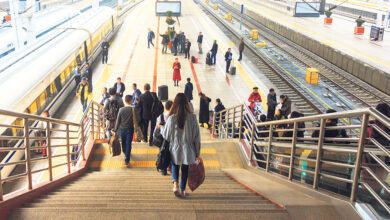Ten ways to lighten your carbon footprint
Opinion Feature
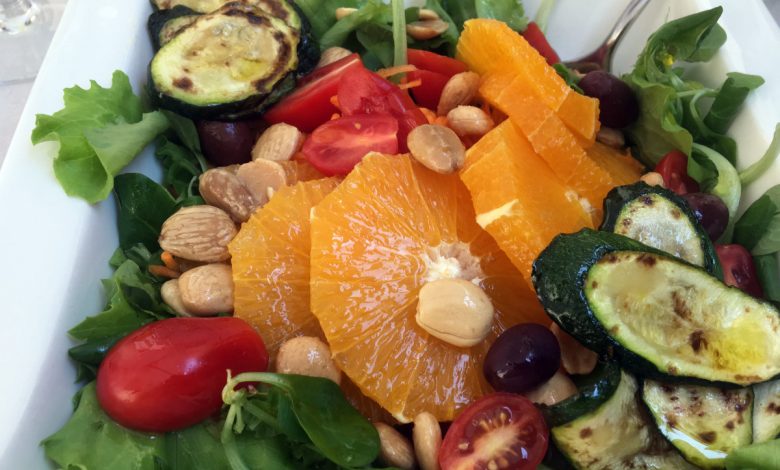
It’s is not about striving for perfection – small, imperfect actions by the many make a bigger difference than perfection by the few.
Making sustainable swaps is easier than ever before and resources abound, from books, blogs and apps galore to a plethora of planet-friendly products and services.
Go vegan
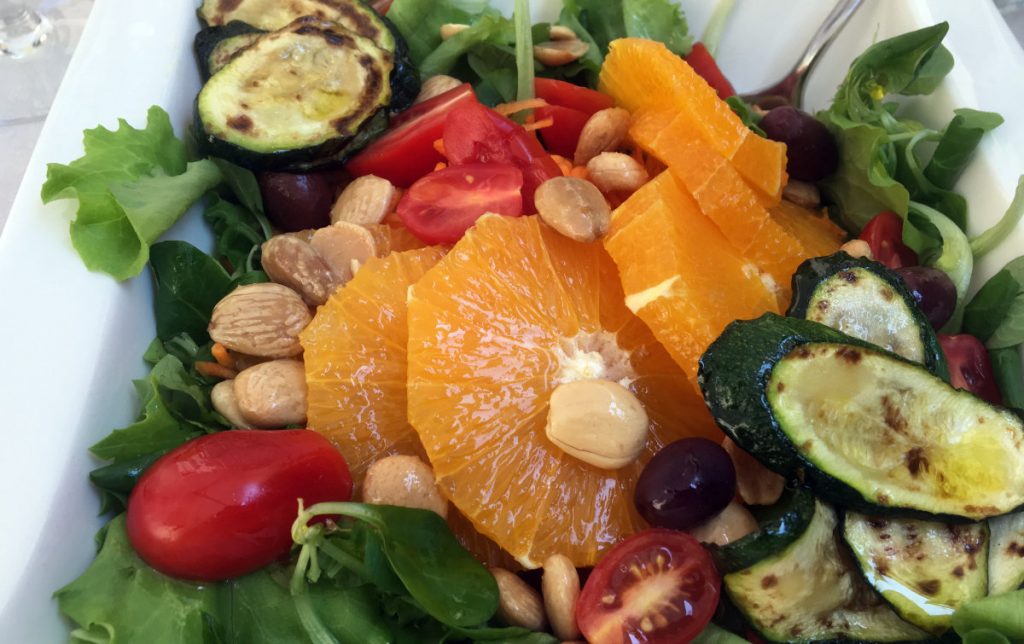
Vegan and plant-based lifestyles are a game-changer for the health, wealth and welfare of humans, animals and the planet, saving energy, resources, emissions and lives.
UK annual CO2 emissions by diet are: meat 2,055kg; vegetarian 1,391 and vegan 1,055. Every UK family removing meat from one meal a week is equivalent to taking 16million cars off the road. Animal agriculture is responsible for 91% of Amazon rainforest destruction and its emissions are expected to increase 80% by 2050.
It’s cheaper – vegan meals cost around 40% less than meat and fish ones; meat-eaters spend £645 a year more.
You’re not alone – one in three Brits have stopped or reduced their meat consumption; the number of vegans in the UK has shot up by 62% in the last 12 months.
It’s easy – vegan and plant-based products and menus are now abundant in supermarkets, restaurants, a burgeoning cohort of independents and small businesses and resources for help and advice are plentiful. Among countless organisations, charities and other mines of information are Viva! The Vegan Society and Veganuary.
Fly low

Much of the world may have been a no-fly zone recently but on the lighter side flying is hugely carbon-heavy – air miles cost the earth dear. Highest impact flights are long-haul – one return ticket from London to New York is the emissions equivalent to heating an average home for a whole year. Aviation guzzles five million barrels of oil a day and flying emissions are climbing – by 32% between 2013 and 2018. Cheaper prices are seeing more people are flying, more frequently. Trains and coaches, though more expensive, have far less impact.
While it may be unrealistic and undesirable to ground yourself entirely there are numerous things you can do lighten your load, including reducing the number of flights; using a carbon calculator such as at climatecare.org; buying carbon offsets for unavoidable flights and choosing airlines that fly newer, more efficient aeroplanes.
If Zooming doesn’t cut it, business and first-class flying emits around four times as much as economy, even on the same plane. Travelling light also helps, since more weight burns more fuel.
Up your brew
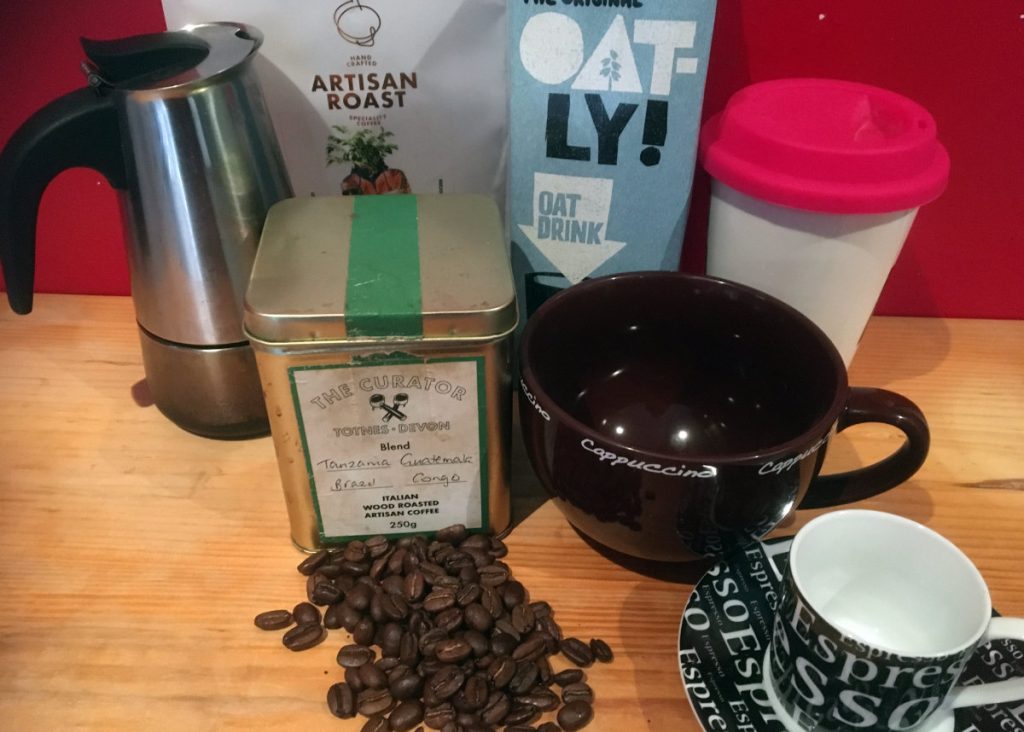
The carbon cost of our daily cuppa may seem a drop in the ocean but the smallest changes add up. Some 9.5bn kg of coffee a year is produced globally, with demand expected to triple by 2050. There are greener ways of sustaining our caffeine habits so the planet takes less of a hit in emissions, habitats and resources like land, labour and water. But research has shown that changing how it is grown, transported and consumed can cut its carbon emissions by up to 77% – and you can help. One espresso has a carbon footprint of about 0.28kg but if grown sustainably it could be 0.06kg. Among measures you can take are buying Fair Trade and Rainforest Alliance certified and organic coffees that ensure certain ethical standards, as well as reusable cups, filters and coffee pods. If you take yours with milk make it plant-based – a glass of cow’s milk produces nearly three times more emissions and consumes nine times more land. Similar principles apply to tea but there are hidden plastics in the humble bag, including glue used to seal it. Loose leaf tea is the obvious answer, though some mainstream companies are beginning to cut plastic in their bags.
Shrink your plastic footprint
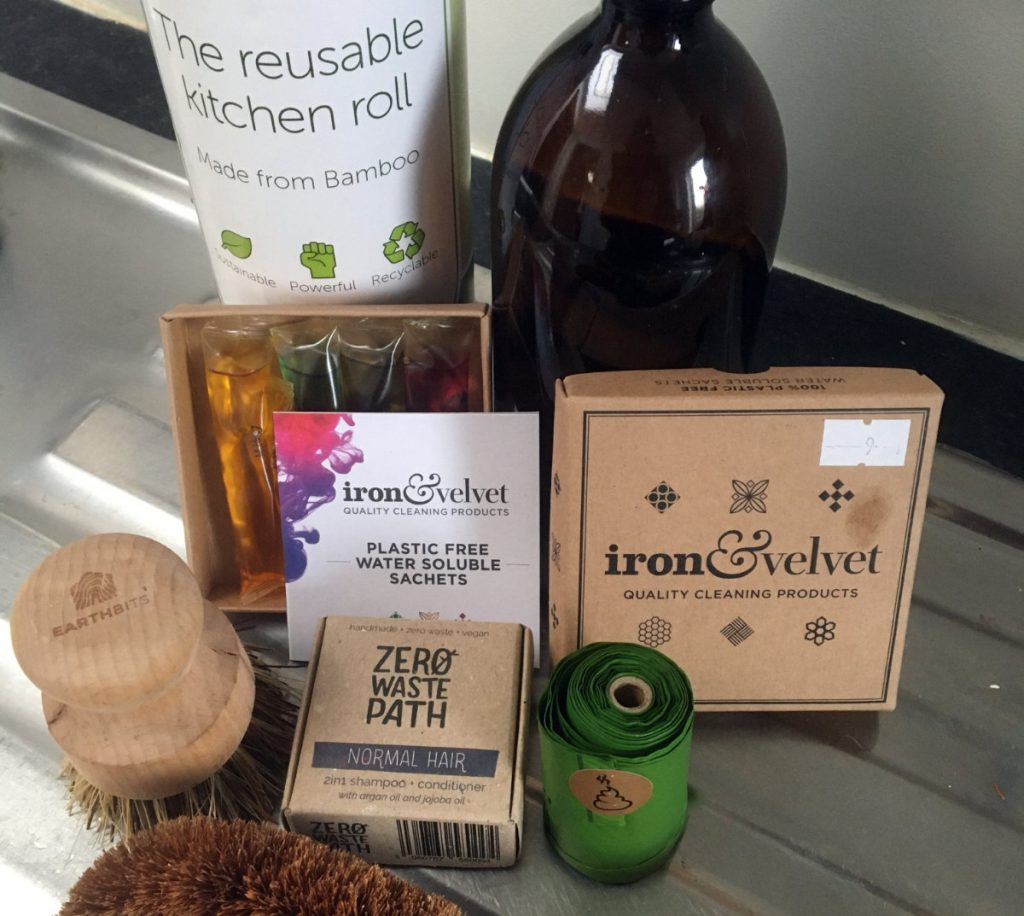
The destruction wreaked on life on Earth by plastic cannot be overstated. Oceans are drowning in 11million tonnes of waste plastic; animals are being trapped, dying in and choking on some 25 trillion pieces of discarded items – from bags to bottle tops, cups to netting, food wrapping and so much more – and what they’re ingesting ends up in the food chain, including us. With the tidal wave of debris predicted to triple to 29m tonnes by 2040 the magnitude of the problem is off the scale. But with a little help from us all it is perfectly solvable. There are single-use plastics in every area of our lives and opportunities to ditch them are greater than ever, thanks to a rapidly-growing market in zero-plastic alternatives to everything from personal to pet care; cleaning products to food; home accessories to stationery – the range is enormous. Even the simplest switch such as using soap bars instead of shampoo, conditioner, body wash and washing-up liquid will save some of the 35.8m plastic bottles used in the UK every day. Sustainable swaps are available everywhere from supermarkets and major retailers to small independents. Buying British can also reduce their transport carbon footprint by 94%. Three of numerous such firms are EcoVibe; EarthBits and Plastic Freedom.
Detoxify your home
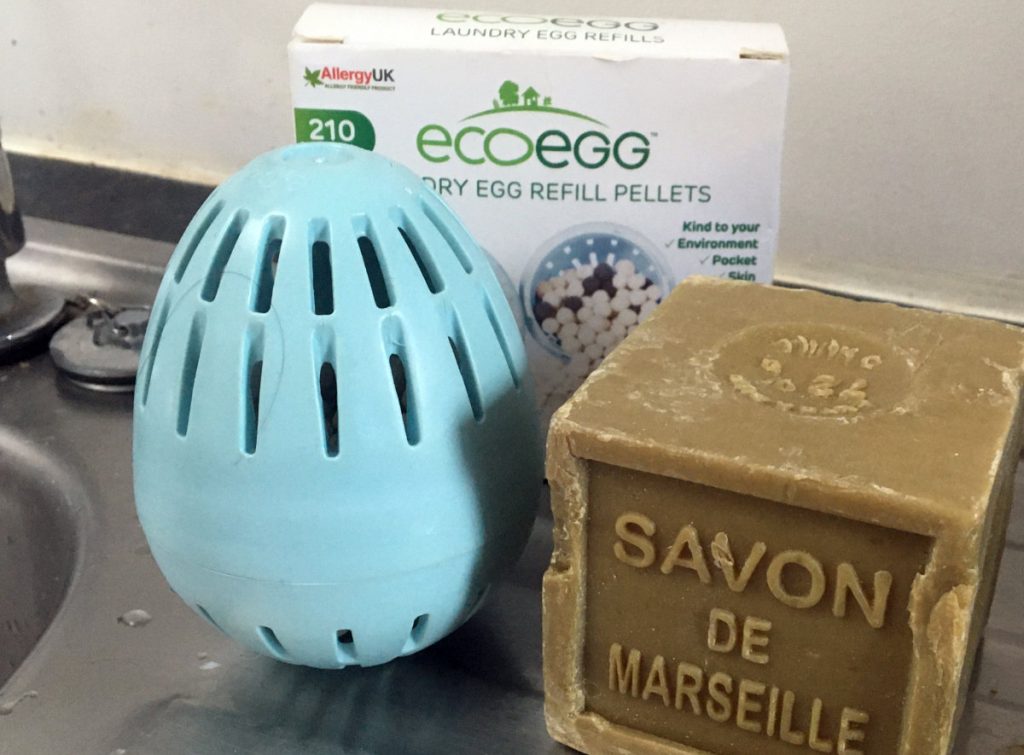
You can make your own green alternatives to chemical-laden household cleaners with baking soda, vinegar and lemon juice. But there are lots of products now that cut out the toxic nasties that contribute to air and water pollution and high-use activities like laundry and dishwashing are where you can make a big difference. Examples include laundry eggs, soap nuts and soap bars. The ingenious ecoegg is filled with natural mineral pellets, completely free from harsh chemicals and replaces laundry detergent and softener. It doesn’t leave chemical residue on clothes so also cuts out the rinse cycle, saving energy. If you used it for one wash a day you’d save 40 bottles of detergent and softener a year. The egg, from ecoegg.com, costs £9.99; lasts around 210 washes while the refills, at £4.99, last 50; it’s guaranteed for 10 years and is recyclable. Soap nuts, Indian tree berries that contain natural soap, are widely available and cost around 3p a wash. EarthBits also does a traditional, long-lasting, 100% natural, 100% biodegradable soap bar that’s chemical, preservative and cruelty free and so versatile it can be used on dishes, clothes and much more, including people!
Waste not want not
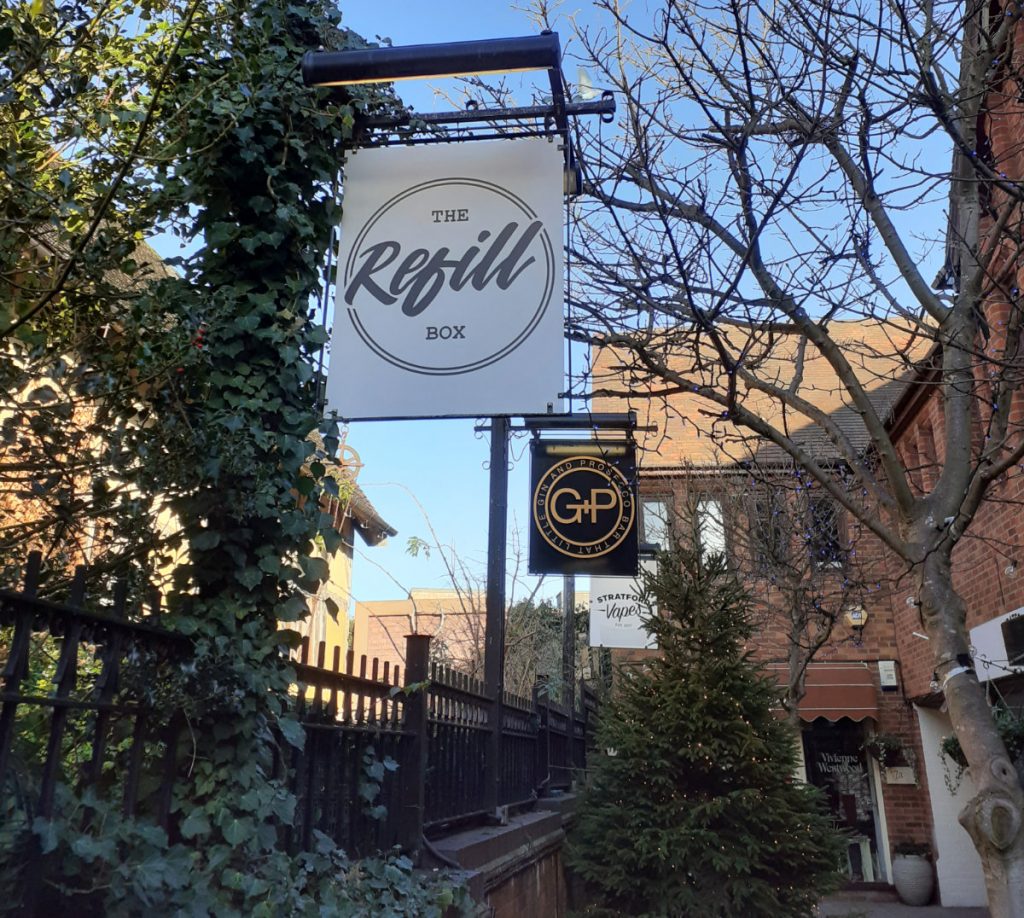
Around 14% of all food purchased in the UK is thrown away, that’s 10 million tonnes of wasted food, 60% of it avoidable. The average UK household throws away £730 worth every year and this waste food mountain creates over 20 million tonnes of greenhouse gas emissions. There are many ways we can be smarter with food, including in the way we shop – we go to supermarkets without knowing what’s already in our cupboards; buy more than we need and can use up and are tempted by offers for things we didn’t know we wanted. A growing crop of zero-waste or refill shops has emerged to help revolutionise the way we shop and cut down on both plastic and food waste. These sell a host of everyday essentials with a long shelf-life, from pasta to beans, flour and rice to spices and everything in between and customers take their own containers to fill with as much or as little as they need. This can cut down on journeys as well as unnecessary purchases and packaging and zero-waste shops are generally ethically-minded enterprises that offer locally-produced, sustainable goods.
Join the circle
A move to a circular economy is taking hold in the UK in a bid to shift production and consumption from our throw-away-and-replace culture to a more sustainable reuse and renew one that generates business and economic opportunities and provides environmental and societal benefits. There are many kinds of waste mountains, from clothes to electronics, with enormous impacts on the planet. But there are many things you can do, including supporting enterprises that put their money where their circular model is. UpCircle, for example, makes ethical skincare products from cafe culture’s cast-off coffee grinds, of which the UK produces half-a-billion tonnes a year – and the food industry’s discarded fruit stones, 23,000 tonnes of which was produced in 2012. You can even save the world one beer at a time, thanks to Toast Ale’s mission to bring positive change to the planet. In the UK it uses surplus bread from the sandwich industry instead of virgin barley to brew its beer. This reduces emissions and demand for natural resources like land and water as well as cutting food waste – up to 44% of UK bread is never eaten. It also donates 100% of its profits to charities that fix the food system. Since 2015 it has saved 1,957,042 slices of bread; 42 tonnes of emissions; 171,848sq m of land; 252,043ltrs of water and more. Visit upcirclebeauty.com and toastale.com for more information.
Clean up your beauty act
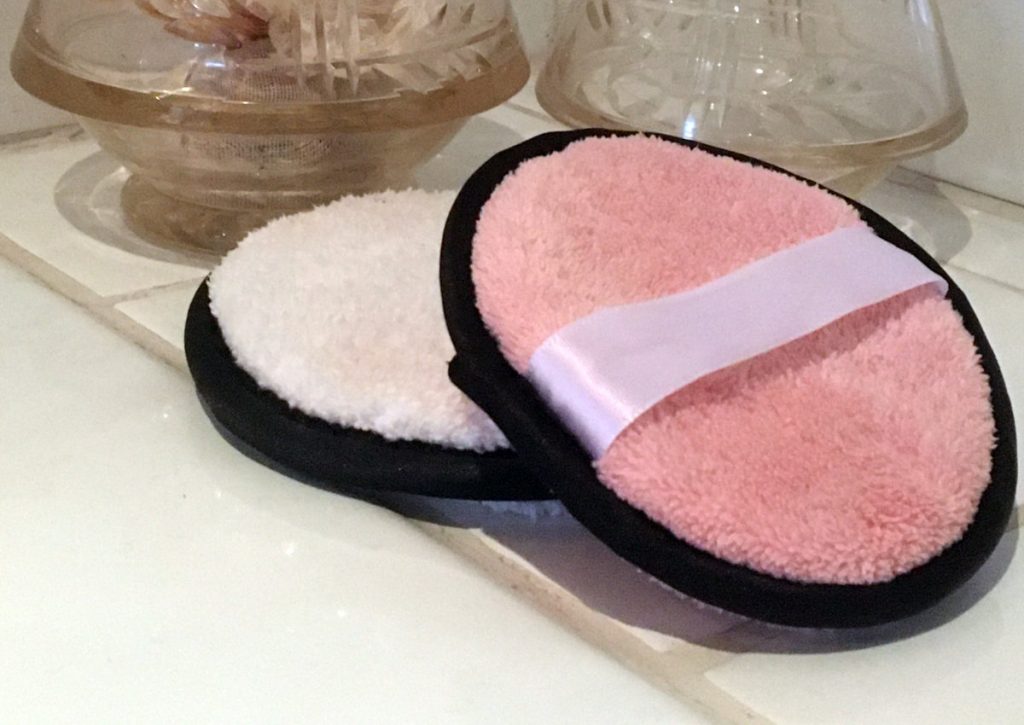
With cotton buds set for a ban this year because of their disastrous environmental footprint attention is turning to other eco-evils such as disposable face wipes, cotton pads and balls, which either end up in landfill or the sea. Not only are they non-recyclable and non-degradable, they also contain chemicals that are hard on wildlife and your skin. They have a hefty carbon footprint – 1kg of cotton pads uses 20,000 litres of water to produce and some 9.3 million wipes are flushed down UK toilets every day. The market is now awash with greener alternatives, made in an array of sustainable materials, such as bamboo, organic unbleached cotton, microfibre and in many forms, including pads, flannels, mitts and muslins. They only need water to remove make-up and can last years and hundreds of washes. They can be washed by hand or machine and many brands come with their own laundry bag to keep them at their best.
Go wild
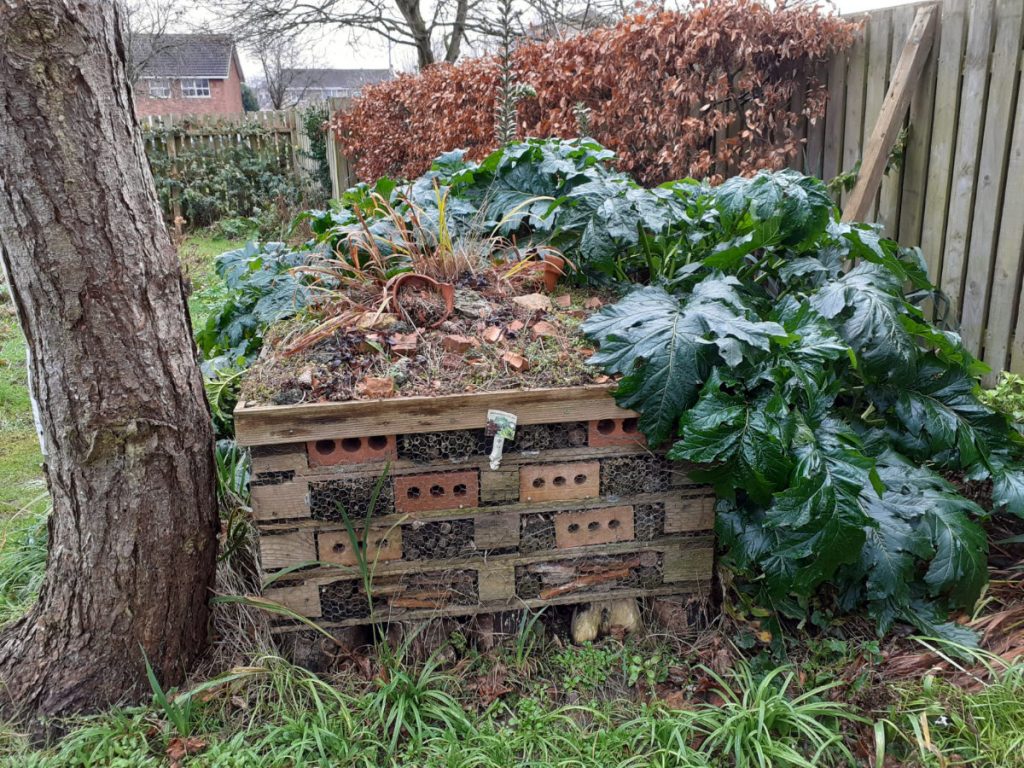
Britain has lost 97% of its wildlife meadows since the end of World War II, while a recent report warned of a global ‘bugapocalypse’ with an alarming 40% of insect species facing extinction, partly because of habitat loss and climate change. However, there are some 24 million gardens in the UK spanning 270,000 hectares, more than all nature reserves combined. Rewilding starts at home and is crucial to help stop the steep decline in insects and species that depend on them, including us, and arresting climate and ecological breakdown. Insects are vital to ecosystems and food chains; to soil health; as pollinators and food for other species like birds, bats and hedgehogs. Outdoor spaces great and small can provide creature comforts and refuge, from hedges to ledges and even leaving the lawn a little longer is a haven for insects. Grow wildflowers and herbs in window boxes, pots and every container imaginable, from old boots to kettles – even the kitchen sink can become a carbon sink, a mini-pond. You can build bug and bee hotels; plant seed balls; provide bird tables, bat boxes, hedgehog homes and shelter all year round in thick ivy and log piles. There are lots of sources of help, information and ideas, including wildlifetrusts.org and backyardnature.org
Let there be decarbonised light
A report for the Committee on Climate Change says consumers urgently need a lower-carbon energy switch for the UK to meet its decarbonising targets. The two areas needing more contribution from households are transport and heating, particularly switching from fossil fuels to low-carbon electricity, such as electric vehicles and heat pumps. Not everyone can stretch to these but on the home front consumers can still play a huge role by cutting energy use and supporting green energy companies. Ethical Consumer, which investigates, scores and ranks the environmental and ethical credentials of companies, products and services, recommends two – Good Energy and Ecotricity. Good Energy was the first UK company to provide 100% renewable energy, from its own wind and solar farms and over 1,000 independent renewable generators across Britain. Its green gas is completely carbon neutral, with six per cent from biomethane sourced from UK food waste. Ecotricity is also certified by Viva! and The Vegan Society as the world’s only vegan energy supplier, as it doesn’t use waste from farms and slaughterhouses to convert into energy. For a full green and ethical run-down visit ethicalconsumer.org





